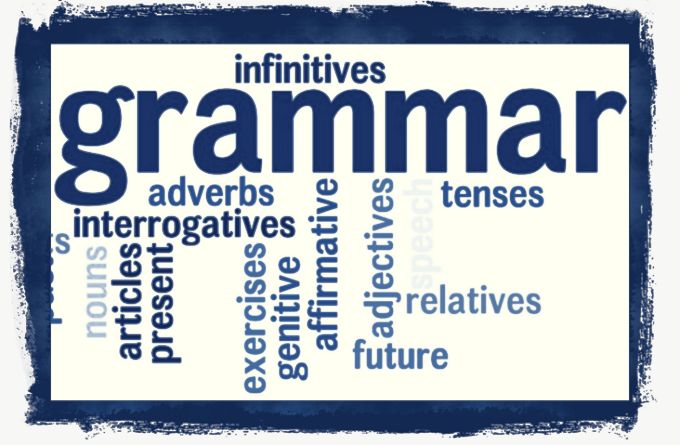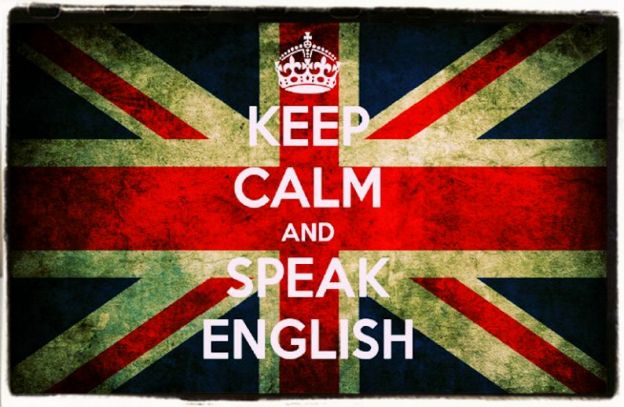
Language and grammar, a page of our English culture blog, the World of English that explains the main functions of the language and the importance of grammar.
Language is not an abstract construction of the learned, or of dictionary makers, but is something arising out of the world, needs, ties, joys, affections, tastes, oj long generations of humanity, and has its bases broad and low, close to the ground.
Walt Whitman
Language is as much an art and as sure a refuge as painting or music or literature.
Jane Ellen Harrison
To understand a sentence means to understand a language. To understand a language means to be master of a technique.
Ludwig Wittgenstein
Philosophy is a battle against the bewitchment of our intelligence by means of language.
Ludwig Wittgenstein
If we spoke a different language, we would perceive a somewhat different world.
Ludwig Wittgenstein
The limits of my language means the limits of my world.
Ludwig Wittgenstein
The minimum grammar is no grammar at all.
Giuseppe Peano
Language exists only when it is listened to as well as spoken, The hearer is an indispensable partner.
John Dewey
Grammar is the logic of speech, even as logic is the grammar of reason.
Trench
The Story of language is the story of human civilization. Nowhere is civilization so perfectly mirrored as in speech. If our knowledge of speech, or the speech itself, is not yet perfected, neither is civilization. Language is forever changing and evolving, as are all human things. Linguistics, the study of the laws governing the evolution of language, becomes socially significant only when it sheds light upon the people who speak languages and their civilization. When this light is properly cast, linguistics ceases to be the dry-as-dust subject that many people have suspected it of being, and becomes the most absorbing of pursuits – absorbing as the study of mankind itself.
Mario Pei
‘‘Grammar” is a term devised by the Greeks, in whose language it literally means “that which pertains to writing.” The modern tendency, however, is to regard grammar as the study o£ speech rather than of writing, or at least of both. The Romans had a saying Verba volant, scripta manent (“What is spoken flies away, what is written endures”), which perhaps serves to illustrate the point of view of the Greeks, as well as of grammarians generally. The written word, remaining as a permanent record, is worthy of greater consideration than the fleeting spoken word.
Mario Pei

The study of spoken and written language occupies a significant part of contemporary primary and secondary school and university curricula. The grammars, handbooks of style, and composition texts used in these curricula are based on various assumptions about language and about why it should be studied. It is important that teachers have a critical understanding of these assumptions, which in many instances are either indirectly stated or omitted entirely.
So these pages, links and resources are designed to help you to: develop the critical resources you need as a learner or teacher to respond to many language-related issues; understand the many concepts needed to talk appropriately and accurately about language; develop skills that you will use in everyday teaching of language, literature, reading, and writing.
In the pages to follow you will encounter ideas about language that may be new to you and which may contradict ideas you’ve been taught. We cannot guarantee that these new concepts will be easy to master, but we do believe that they are worth your best efforts. We will, as we said earlier, try to begin with what you know about language.
For example, you have probably been taught to avoid non-standard expressions such as seen or seed instead of saw, to avoid multiple nouns as modifiers, to make sure that your subjects and verbs agree, to use parallel structures where possible, and the like. These are usage rules. They have at least two jobs to do. First, they help define the standard variety of English – recall our question in our introductory chapter that asked you to consider why anything, e.g., electrical outlets, might be standardized. You probably answered by saying that standardization allows the greatest number of people to use it for the greatest number of purposes.
You might also have added that if something is standardized, then it can be maintained in that form for a long period of time. Surprisingly, few people have even the most rudimentary conception of what a language is, even though they use (at least) one in nearly every waking moment of their lives. Generally we can lead perfectly adequate lives without conceptions based on serious reflection on important topics. For instance, we do not need a precise understanding of physical notions such Delahunty and Garvey as force, work, or energy to hit home runs or drive cars. But education aims to help us understand things that we take for granted. Language is a prime example. It is a device of mind-boggling complexity, but few people have a clear conception of its nature and use.
So, what is a language? What we have in mind here is a natural (i.e., not an artificial or computer-based) system for human communication, such as English, Chinese, Swahili, or American Sign Language (ASL).
In this book, we’ll assume that A language is a set of rules, unconsciously present in the mind, which enables human beings to represent and communicate meanings by producing audible, visible, or tactile symbols that these rules systematically relate to those meanings.

This definition may seem forbidding and abstract, so let’s look at it piece by piece. A language enables its users to communicate meanings by systematically relating perceptible actions and meanings.
Meanings are mental states or activities, and as such cannot be directly observed. If we want to communicate our meanings to someone else, we must use something they can perceive with their senses – for example, noises, gestures, flag waving, or marks on paper. For any of these to communicate successfully, there must be a system that consistently relates the observable signals with the private meanings. For lots of good reasons, sound evolved as the primary mode of human communication. This issue is discussed in the next section.
Most people conceive of meaning in terms of information – ideas about the external world or about our thoughts and beliefs. This is called referential (experiential, ideational) meaning. Referential meanings represent events such as The US women’s soccer team won the World Cup or states such as The sun is a small star.
They are descriptions of states of affairs, real or imagined. Referential meaning is probably the most commonly communicated type of meaning. However, there are other kinds:
• Expressive meaning: reflects the emotional state of a speaker. Ouch! has no referential status but expresses pain.
• Persuasive (conative) meaning: refers to the intended effect of an utterance on its hearer; it attempts to get an audience to perform an action or to believe something. Get out! is an attempt to get someone to leave; I love you. Honest, I really do! is an attempt to get someone to believe that “I” loves them.
• Social (phatic, interpersonal) meaning, as in expressions such as Hi! and How are you? , establishes and maintains social contact between communicators.
• Textual meaning is communicated by utterances that constitute (part of) a text, e.g., The dogs were very noisy. The German shepherds were the worst. Without very noisy in the first of these two sentences, it would be impossible to interpret the worst as noisiest. This meaning derives from the assumption that the two sentences are to be interpreted as a text, that is, one or more sentences or utterances intended to be taken as a coherent whole. Some expressions have only textual meanings. For example, in some of its uses
so indicates that the expression it introduces is to be interpreted as a conclusion drawn from a prior expression or from the context. The retort So what? is a demand to know what conclusion to draw from what a speaker has just said.
• Metalinguistic meaning addresses matters concerning the language itself. Definitions and word puzzles are metalinguistic, e.g., What I meant to say was …, or What English word has three double letters in a row?
• Poetic meaning reflects nuances of interpretation created by the manner in which information is expressed. It is the aesthetic dimension of language and language use. Advertisers make good use of
language’s poetic possibilities. They use puns as well as rhythm and rhyme: Wendy’s restaurants advertised their extended business hours with the pun, See ya later!; a Cheyenne, WY store advertised tires with the
rhyme, Great deals / On tires and wheels ; local authorities attempt to draw drivers’ attention to road work with the pun Give ’em a brake! and the rhyme Cone Zone.

To find out more about this topic you can also read the following articles:
Countable and uncountable nouns
Plural forms in English plus analysis
Short History of the Origin of English
History-of-the-English-Language.pdf
British-history-milestones-synthesis
Questions-about-the-english-language
History-of-English-Literature-Summaries.pdf
British_literature_history_chart_summary.htm
General_literature_history_chart_summary.htm
American_literature_history_chart_summary.htm
British_english_history_timeline.htm.
Videos:
History of English in 10 minutes ;
On Facebook ;

